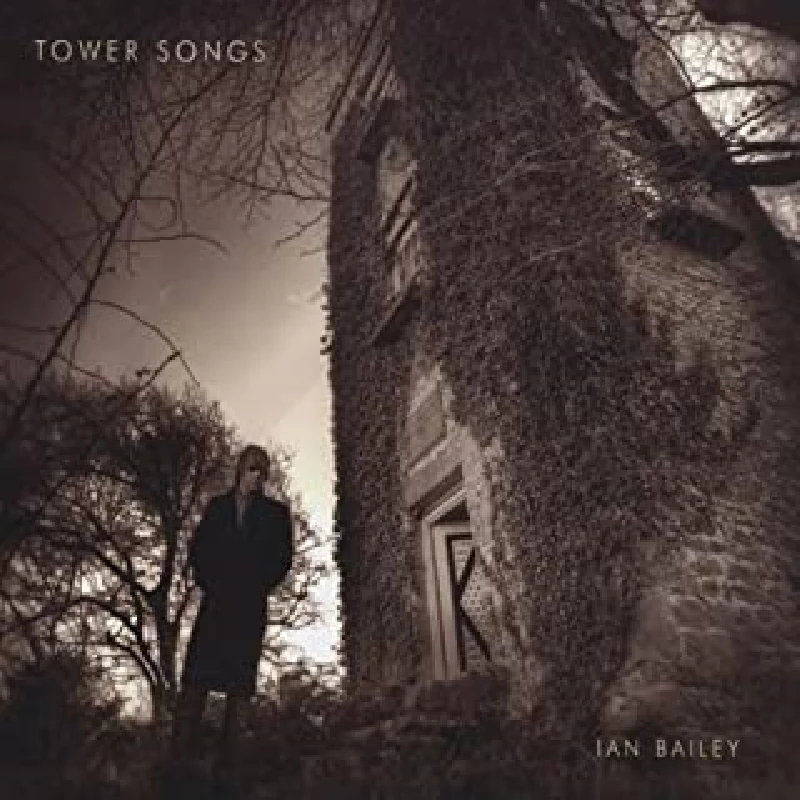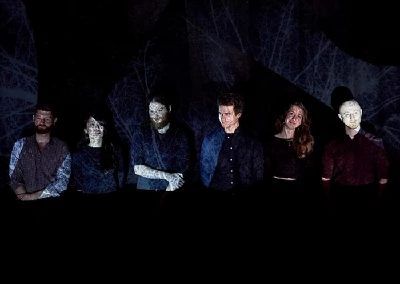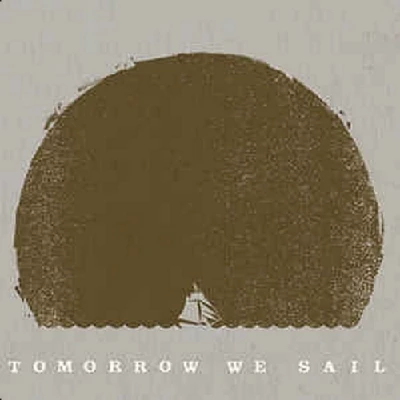Tomorrow We Sail - For Those Who Caught the Sun in Flight
by Adrian Janes
published: 6 / 3 / 2014

Label:
Gizeh Records
Format: CD
intro
Melancholic, but polished blending of folk, classical and rock music on long-anticipated debut album from Leeds-based seven-piece,Tomorrow We Sail
Tomorrow We Sail are a seven-piece band from Leeds. This first album has evidently been some time in gestation, versions of two of the seven songs (‘The White Rose’ and ‘For Rosa’) having already been released in 2011 and 2012 respectively. The highly polished performances of these intricately constructed, long songs are further proof of the time they have taken over its realisation. As all of this would suggest, they are in no rush. Even though there are moments of fierce intensity, the pace of these songs largely moves between slow and funereal. This makes the album somewhat hard to warm to initially. From the outset (‘The Well & the Tide’) there is a certain chilliness, dark piano chords and plaintive guitar and keyboards the setting for Tim Hay’s sombre voice. With a growing tension added by violin and thudding tom tom, Hay’s voice too ascends at the close in contrast to softly chanting women. ‘Eventide’ seems to be a tale of some unspecified misery, with its opening “Cruel hands of time/That move so slowly” and conclusion of “I lay these weary bones to rest.” Here, as so often, there is a strong sense of classical influences, with piano, strings and voice once more prominent, although Matt Clarke’s restrained guitar provides more colour. The climax is impressive as instruments, male and female voices swell together. After this sober, uncompromising start, the trilogy of ‘Never Goodbye’, ‘December’ and ‘Testament’ is more immediately accessible. Said to be based “loosely” on Vera Brittain’s writing, she being someone who became a committed pacifist in response to the nightmare of World War One, this could be a very timely protest as the 100th anniversary is already seeing efforts to rehabilitate and downplay the war’s horrors. Unfortunately, lacking a lyric sheet, it is hard to get more than a general impression of where the band are going with this material, through snatches of words and the moods of the music. The nostalgic piano intro to ‘Never Goodbye’ leads into a duet of hushed male and female voices. The music ebbs and flows, with mournful strings, brushed drums and Ella May Blake’s wistful singing attaining a peak of passion before she brokenly intones at the end “You said you would come home”, each word clearly separate, emphasising the grief. An isolated, reverbed guitar begins ‘December’. It gradually builds in volume, aided by rising strings, the whole exploding into life as drums smash in - it’s one of the most thrilling moments on the album, evocative of GodSpeedYou! Black Emperor in its controlled power.Control remains the watchword, as the song slows down to slammed drums, guitar and keyboard drone before cycling back to the opening theme. Blake movingly sings the trilogy’s final lament of ‘Testament’,harmonising exquisitely with Angela Chan (whose main contribution is as a string player, just one example of the band’s versatility). The pared-down music, with its tabour-like percussion and vocal emphasis, makes this probably the closest thing to folk music on the album, though it’s an influence that is never entirely absent. It can be heard again in the a cappella section which ends ‘The White Rose’, where voices chorus: “We will not be silent/We are your bad conscience/The white rose will not leave you in peace”. The same song also bitterly proclaims, “You have brought this country to its knees”. Whether this is an assertion of Yorkshire pride, of North against the South or something else again isn’t obvious. Despite the anger on which it ends, the overwhelming mood of the song remains melancholy. ‘For Rosa‘ is the concluding epic. At over 13 minutes, it incorporates all the elements of folk, classical and rock with all the strengths of arrangement and shifts in mood which are displayed over the course of the album. Guest player Phil Unciano’s trumpet is also adroitly deployed, the ensemble rising to a fiery conclusion with the violins sawing the song to its cut-off. There is a certain coldness to this album precisely because it is, in every sense of the word, composed. Yet I am sure that for some people this quality will be what makes it an extremely satisfying musical experience, as formidable intelligence and musical ability are clearly at work here. That I personally would like more to hear more of the spontaneous-feeling side of the band shown on ‘December’ (though such passages are probably as well-planned as everything else) is perhaps more my problem than theirs. I have already bemoaned the lack of a lyric sheet, but the general melancholy of this album is saddening not just in itself but as a sign of the times. Somehow I’m driven to think of another Leeds band, the agitated and agitational Gang of Four. I sense a probable loose political kinship, yet the mood of this album and 1979‘s ‘Entertainment!’ could scarcely be more different. The Gang of Four seems, even now, to be music prepared for an age of struggle. Sadly, and often beautiful as it is, Tomorrow We Sail feels like music for an age of defeat.
Track Listing:-
1 The Well & the Tide2 Eventide
3 Never Goodbye
4 December
5 Testament
6 The White Rose
7 For Rosa
Band Links:-
https://www.facebook.com/tomorrowwesailhttp://www.tomorrowwesail.co.uk/
https://twitter.com/tomorrowwesail
https://tomorrowwesail.bandcamp.com/
Label Links:-
http://www.gizehrecords.com/https://www.facebook.com/gizehrecords
https://twitter.com/gizehrecords
interviews |
|
Interview (2018) |

|
| John Clarkson speaks to vocalist and guitarist Tim Hay and drummer and percussionist Alistair Hay from orchestral Leeds-based band Tomorrow We Sail about their forthcoming second album 'The Shadows' |
soundcloud
reviews |
|
The Common Fire (2010) |

|
| Fine post rock on beautifully-presented debut EP from Leeds/Sheffield-based group Tomorrow We Sail |
most viewed articles
current edition
Carl Ewens - David Bowie 1964 to 1982 On Track: Every Album, Every SongArmory Show - Interview with Richard Jobson
John McKay - Interview
Colin Blunstone - Thalia Hall, Chicago, 16/7/2025
Bathers - Photoscapes 1
Billie Eilish - O2 Arena, London, 10/7/2025
Loft - Interview
Visor Fest - Valencia, Spain, 26/9/2025...27/9/2025
Sir Tim Rice - Interview
Robert Forster - Interview
most viewed reviews
current edition
Davey Woodward - Mumbo in the JumboSick Man of Europe - The Sick Man of Europe
Lucy Spraggan - Other Sides of the Moon
Amy Macdonald - Is This What You've Been Waiting For?
Phew, Erika Kobayashi,, Dieter Moebius - Radium Girls
Suzanne Vega - Flying With Angels
Bush - I Beat Loneliness
Alice Cooper - The Revenge of Alice Cooper
Blueboy - 2
Cynthia Erivo - I Forgive You
Pennyblackmusic Regular Contributors
Adrian Janes
Amanda J. Window
Andrew Twambley
Anthony Dhanendran
Benjamin Howarth
Cila Warncke
Daniel Cressey
Darren Aston
Dastardly
Dave Goodwin
Denzil Watson
Dominic B. Simpson
Eoghan Lyng
Fiona Hutchings
Harry Sherriff
Helen Tipping
Jamie Rowland
John Clarkson
Julie Cruickshank
Kimberly Bright
Lisa Torem
Maarten Schiethart